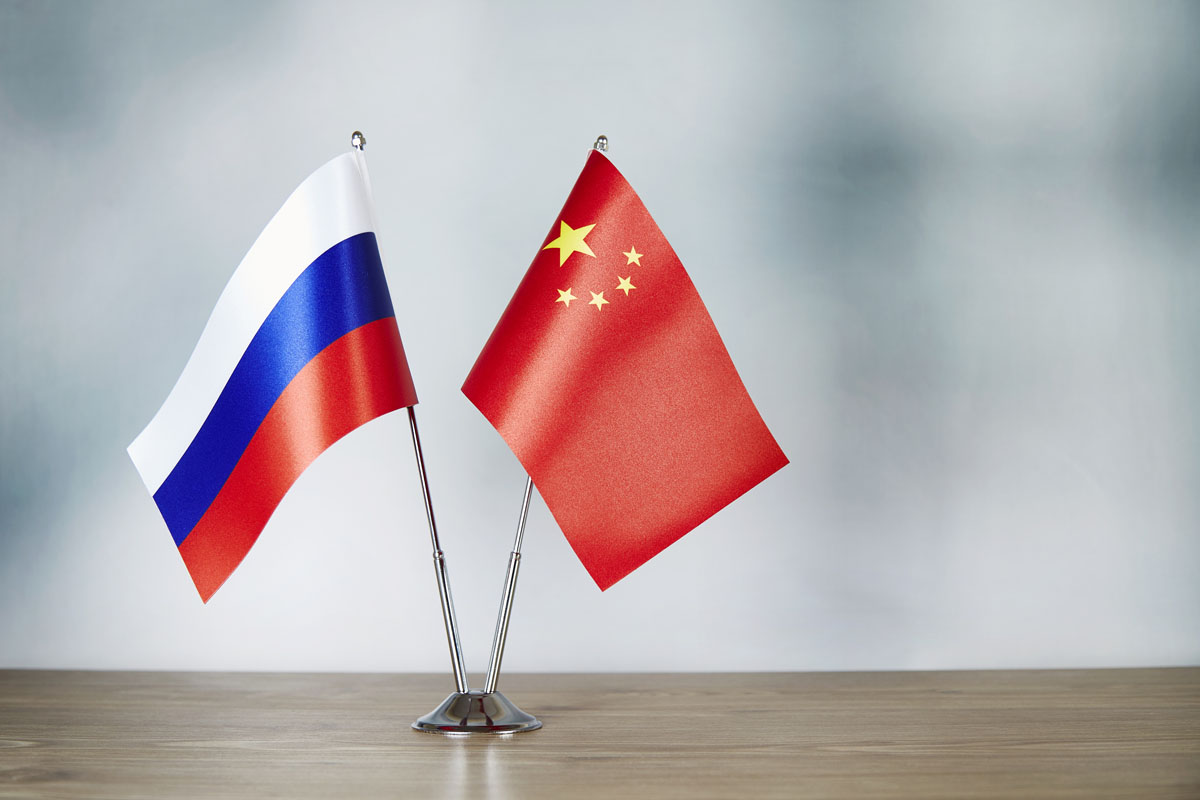There is a widespread practice of uniting China and Russia into one geopolitical group, which everyone perceives as a stable alliance between the two states. Mykola Kapitonenko, an expert at the International Centre for Perspective Studies, told Apostrophe whether there really is an alliance between China and Russia, and what is the key interest of Chinese-Russian cooperation.
There is no formal defense agreement between China and Russia. Their relations do not and will not fall within the classical definition of a military alliance: both Beijing and Moscow have repeatedly stated their reluctance to create a military alliance. But in a world where everything - including alliances - has become volatile and unconventional, Sino-Russian cooperation based on a mutual vision of world politics and U.S. opposition to it may have a higher potential than most observers expected a few years ago.
The ability of Beijing and Moscow to build a sustainable and effective strategic partnership has traditionally been questioned. Russia and China have different geography of interests, asymmetry of power potentials, and complex history of relations. Both states have a reason not to trust each other completely.
But each of these arguments can be questioned. History can be left in the past; and different geography of interests and capabilities asymmetry, on the contrary, can become the basis for long-term cooperation, mutual complementarity, and the absence of acute conflicts in key regions. The volume of Sino-Russian trade exceeds $107 billion; at the same time, China is Russia's largest trading partner. Both countries have authoritarian regimes. In a world where the division of democracy and non-democracy becomes ideologically important, this is crucial. Both China and Russia use the term "multipolarity" in their official rhetoric - and it is important to them in terms of countering the U.S. hegemony.
Since 2014, the year which brought a deep and long crisis in relations between Russia and the West, there have been more grounds for rapprochement between Moscow and Beijing. Two states often take each other’s side in the UN, including the veto power in the Security Council. In addition, both countries are interested in maintaining stability in Central Asia; have similar views on the problem of nuclear proliferation and the fight against international terrorism.
Rhetoric about friendship, cohesion, and mutual respect permeates the communication of Chinese and Russian officials. The Treaty on Good Neighbourliness, Friendship, and Cooperation, signed in 2001 by China and Russia, was extended this year. Even though the agreements were signed in other geopolitical realities, they created the basis for the rapprochement of two states.
In addition, military cooperation between the two states is becoming increasingly significant amid the increased arms development (China, according to some estimates, has already increased its military spending by 30% compared to the U.S. military spending).
More than 10,000 Chinese and Russian military personnel participated in the joint exercise "West/Interaction-2021" in August 2021. It was the fourth joint exercise this year, following which the fifth - anti-terrorist multilateral exercises were held within the framework of the SCO "Peace Mission 2021" - another manifestation of constantly expanding and deepening military cooperation between two states.
Since 2005, joint Sino-Russian military exercises have become regular; and since 2018, it has been largely focused on the joint work of senior commanders. Up to 300,000 military personnel, more than a thousand aircraft, 36,000 tanks, and 80 warships at 5 test sites were involved in the Vostok-2018 exercise. Military competitions, naval maneuvers, and anti-terrorist exercises have become common practices.
Last December, the Ministries of Defense of China and Russia extended the agreement on the advance notification in case of the launch of ballistic missiles and launch vehicles. Chinese and Russian strategic aviation jointly patrols the Asia-Pacific region. Finally, in November this year, the heads of the defense ministries of the two countries signed the Roadmap for cooperation between Russia and China in the military sphere.
The deepening of military cooperation with the obvious proximity of international political views occurs against the background of increasing general tensions in the world, related to both Russia's maneuvers near the borders of Ukraine and China's activity around Taiwan.
It is not yet a usual military alliance. It will probably not be in the foreseeable future: neither Moscow nor Beijing wants to bind themselves to such long-term obligations. But the number of shared strategic interests, the anti-Western vector, and mutual complementarity of the resources of the two nuclear countries may well make the partnership between China and Russia more than strategic.


